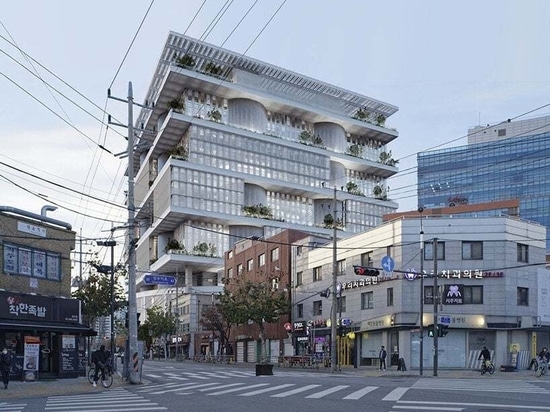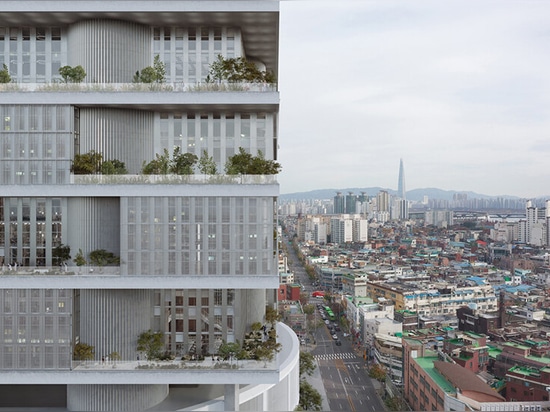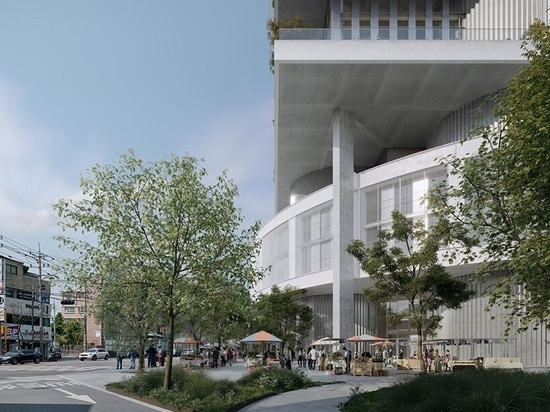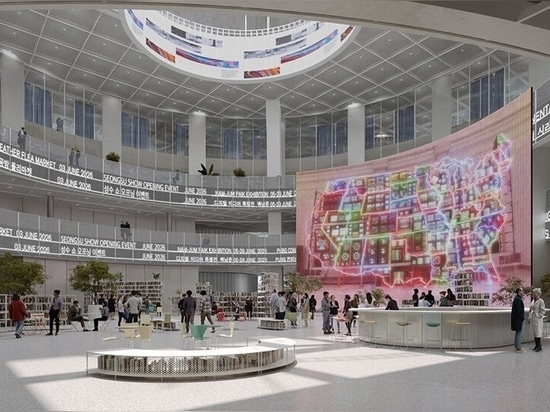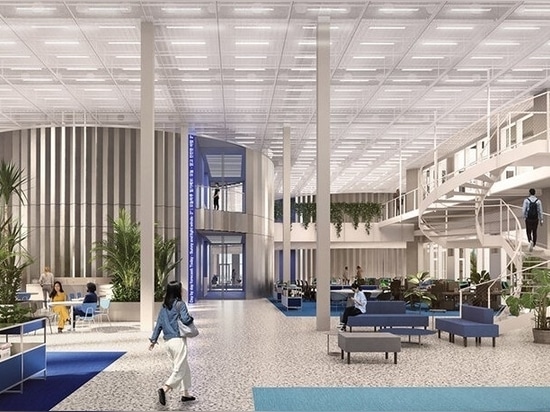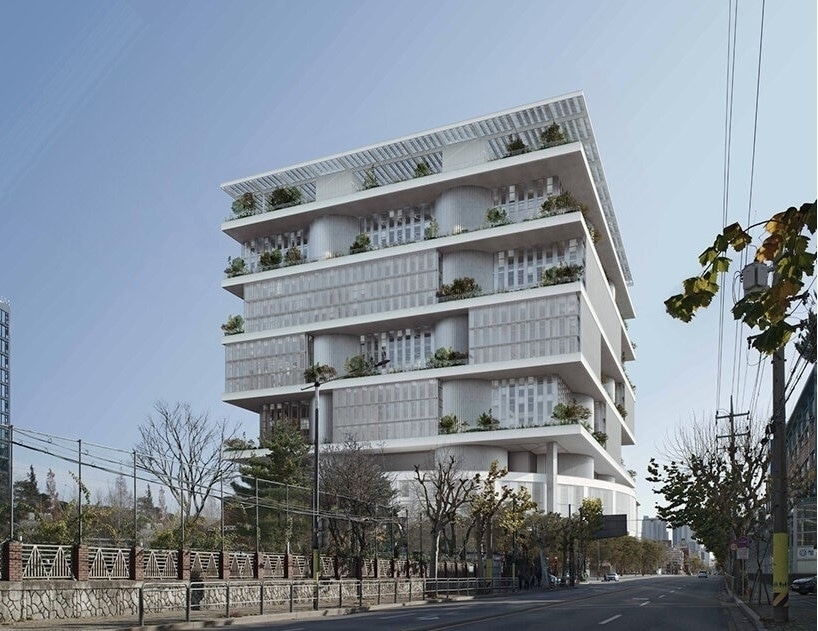
#COMMERCIAL ARCHITECTURE PROJECTS
Layers of 'hardware' + 'software' define David Chipperfield Architects' IT building in Seoul
‘K-PROJECT’ BY DAVID CHIPPERFIELD ARCHITECTS + SAMOO ARCHITECTS AND ENGINEERS
Envisioned as a competition entry for Mirae Asset Global Investments, a South Korean IT company, ‘K-Project’ by David Chipperfield Architects takes shape as a dynamic headquarters in the Seongsu district of Seoul. The practice designed the project in close collaboration with local architects and consultants, conceiving it as a piece of infrastructure with the flexibility to accommodate the company’s diverse range of activities, staff, and visitors, both now and in the future.
Indeed, rather than trying to create a singular and fixed architectural image, the ‘K-Project’ concept uses the life and energy of the IT company and that of the neighborhood to shape a strong identity for the headquarters. This occurs visually – through its dynamic façades – and also programmatically – through the multi-use atrium and cultural multiplex, which build on the life of the surrounding city.
WHERE ‘HARDWARE’ AND ‘SOFTWARE’ MEET
David Chipperfield Architects joined forces with a group of experts, including Samoo Architects and Engineers, to devise an infrastructural concept for ‘K-Project’ revolving around ‘hardware’ and ‘software’ layers. The hardware comprises five large open-plan floors served by eight vertical cylindrical cores containing circulation and services. Meanwhile, the software features a flexible floor system built between the hardware slabs as mezzanine levels, typically two between each structural floor.
‘The lightweight structure supports the flexible configuration and reconfiguration of workspaces, allowing for growth and adaptation to future ways of working and collaborating. The curtain wall system between the hardware floors is designed to break down the scale of the superstructure and add diversity to the envelope,’ notes the practice. While recessed façades create outdoor terraces and gardens, encouraging social interaction, flush façades are covered in louvers to reduce light reflection and solar heat gain.
As part of the Seongsu district, the new Mirae Asset Global Investments headquarters will look to incorporate and enhance the diverse character of this eclectic neighborhood. For that, the architectural team proposes three urban plazas to expand the public realm around the site’s perimeter and serve as entrance courtyards. Meanwhile, the surrounding organic urban fabric extends to the building’s lower levels, which will be permeable and open to the public.
Moving on to the upper levels, the first two levels of the ‘K-Project’ building form a public cultural multiplex, a ring of retail and cultural activities organized around the central covered square. This top-lit atrium can be easily transformed into an events space while giving access to the other public areas within the building. ‘The enduring quality of the hardware and possibility for future adaptation of the software is a strongly sustainable concept that will allow the building to evolve over time, ensuring its long life and purpose. Additionally, this flexibility means the building can be transformed and occupied in different ways to provide evolving social infrastructure for the community of Seongsu,’ concludes David Chipperfield Architects.
Project info:
Name: K-Project
Location: Seoul, South Korea
Architecture: David chipperfield Architects
Partners: David Chipperfield, Benito Blanco
Project director: Matt Ball
Project architect: Justin Park
Client: Mirae Asset Global Investments
Team: Cecilia Sjoholm, Craig Johnston, Jochen Glemser, Joe Hewlett, John Han, Lesley Cheung, Maria Kabaaga, Meng Ye, Naomi Moreno, Saijel Taank, Sam Ricaud, Sarah Cheung, Sebastian Drewes, Sonia Rubio, Ted Wynne, Yiting Zhou, Yuxin Wu, Ricardo Alvarez, Aurora Montero, Daniel Alexander Kovacs, Hazal Gulsan, Marco Paffi, Abigail Mills, Sergiu Toma
Competition team: Bareera Borhan, Tomi Akinyemi, Nayem Mohammad, Francesco Cavaliere, Jose Azevedo, Sabrah Islam, Yiting Zhou
Local architecture studio: Samoo Architects and Engineers
Landscape design: Studio Loci ; SOLTO Landscape architecture
Structural engineer: Expedition; CNP Dongyang
Services engineer: ENG Energy Institute ; Atelier Ten (competition)
Façade consultant: Thornton Tomasetti ; Innopia
Theatre consultant: Theatre Projects
Project construction manager: Heerim Architects & Planners
Renderings: Artefactory Lab (schematic design) ; Brick (competition)
Graphics: Pentagram
Competition year: 2022
Construction start: 2024
Gross floor area: 217,500 sqm
